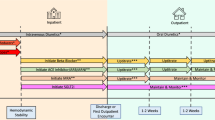Abstract
We have reported that high sodium excretion ≥ 4.0 g/day, assessed by repeated measurements of spot urine, is associated with composite cardiovascular (CV) events of heart failure (HF) hospitalization, acute coronary syndrome, cerebrovascular events, and documented CV deaths in Japanese high-risk patients with either stable and compensated congestive HF, high brain natriuretic peptide, coronary artery disease, cerebrovascular disease, chronic kidney disease, or atrial fibrillation. A total of 520 patients were enrolled. During the median follow-up period of 5.2 years, 105 (20%) experienced composite CV events, which were predominantly driven by 60 (12%) HF hospitalizations. The aim of the present study was to elucidate which subgroups of patients with high sodium excretion were associated with HF hospitalization. We divided the enrolled patients into three groups according to the amount of sodium excretion (< 3.0 g/day, 3.0–3.99 g/day (reference), and ≥ 4.0 g/day) based on a median of 14 measurements during follow-up. We assessed the hazard ratio for HF hospitalization according to age, bodyweight, and gender, using the Cox hazard model. In the total population, high sodium excretion ≥ 4.0 g/day was associated with HF hospitalization [hazard ratio (HR) 1.75, confidence interval (CI) 1.05–2.83] after adjustment for gender, age, and bodyweight, but was not associated with other CV events. In older patients (≥ 75 years old), high sodium excretion ≥ 4.0 g/day was associated with HF hospitalization after adjustment for gender and bodyweight (HR 3.25, CI 1.55–6.55), which was not observed in younger (< 75 years old) patients. In patients with lower bodyweight (< 60 kg), high sodium excretion ≥ 4.0 g/day was associated with HF hospitalization after adjustment for age and gender (HR 3.05, CI 1.34–6.61), which was not observed in heavier (≥ 60 kg) patients. High sodium excretion is associated with HF hospitalization in patients with older age and lower bodyweight in Japanese high-risk patients.
Similar content being viewed by others
References
Sadanaga T, Hirota S, Enomoto K, Kohsaka S, Tsujita K, Ito M, Mitamura H, Fukuda K (2019) Evaluation of sodium intake for the prediction of cardiovascular events in Japanese high-risk patients: the ESPRIT Study. Hypertens Res 42:233–240
Umehara T, Katayama N, Tsunematsu M, Kakehashi M (2020) Factors affecting hospital readmission heart failure patients in Japan: a multicenter retrospective cohort study. Heart Vessels 35:367–375
Tanaka T, Okamura T, Miura K, Kadowaki T, Ueshima H, Nakagawa H, Hashimoto T (2002) A simple method to estimate populational 24-h urinary sodium and potassium excretion using a casual urine specimen. J Hum Hypertens 16:97–103
Appel LJ, Frohlich ED, Hall JE, Pearson TA, Sacco RL, Seals DR, Sacks FM, Smith SC Jr, Vafiadis DK, Van Horn LV (2011) The importance of population-wide sodium reduction as a means to prevent cardiovascular disease and stroke A call to action from the American Heart Association. Circulation 123:1138–1143
Centers for Disease Control and Prevention (CDC) (2009) Application of lower sodium intake recommendations to adults—United States, 1999–2006. MMWR Morb Mortal Wkly Rep 58(11):281–283
Williams B, Mancia G, Spiering W, Agabiti Rosei E, Azizi M, Burnier M, Clement DL, Coca A, de Simone G, Dominiczak A, Kahan T, Mahfoud F, Redon J, Ruilope L, Zanchetti A, Kerins M, Kjeldsen SE, Kreutz R, Laurent S, Lip GYH, McManus R, Narkiewicz K, Ruschitzka F, Schmieder RE, Shlyakhto E, Tsioufis C, Aboyans V, Desormais I, ESC Scientific Document Group ESC Scientific Document Group (2018) 2018 ESC/ESH guidelines for the management of arterial hypertension. Eur Heart J 39:3021–3104
De Santo NG (2014) Reduction of sodium intake is a prerequisite for preventing and curing high blood pressure in hypertensive patients—second part: guidelines. Curr Hypertens Rev 10:77–80
Umemura S, Arima H, Arima S, Asayama K, Dohi Y, Hirooka Y, Horio T, Hoshide S, Ikeda S, Ishimitsu T, Ito M, Ito S, Iwashima Y, Kai H, Kamide K, Kanno Y, Kashihara N, Kawano Y, Kikuchi T, Kitamura K, Kitazono T, Kohara K, Kudo M, Kumagai H, Matsumura K, Matsuura H, Miura K, Mukoyama M, Nakamura S, Ohkubo T, Ohya Y, Okura T, Rakugi H, Saitoh S, Shibata H, Shimosawa T, Suzuki H, Takahashi S, Tamura K, Tomiyama H, Tsuchihashi T, Ueda S, Uehara Y, Urata H, Hirawa N (2019) The Japanese Society of Hypertension guidelines for the management of hypertension (JSH 2019). Hypertens Res 42:1235–1481
Paterna S, Gaspare P, Fasullo S, Sarullo FM, Di Pasquale P (2008) Normal-sodium diet compared with low-sodium diet in compensated congestive heart failure: is sodium an old enemy or a new friend? Clin Sci (Lond) 114:221–230
Arcand J, Floras JS, Azevedo E, Mak S, Newton GE, Allard JP (2011) Evaluation of 2 methods for sodium intake assessment in cardiac patients with and without heart failure: the confounding effect of loop diuretics. Am J Clin Nutr 93:535–541
Hirota S, Sadanaga T, Mitamura H, Fukuda K, Ogawa S (2013) B-type natriuretic peptide levels are decreased by reducing dietary salt intake in patients with permanent atrial fibrillation. Int J Cardiol 167:294–296
Author information
Authors and Affiliations
Corresponding author
Ethics declarations
Conflict of interest
There are no conflicts of interest to disclose.
Additional information
Publisher's Note
Springer Nature remains neutral with regard to jurisdictional claims in published maps and institutional affiliations.
Rights and permissions
About this article
Cite this article
Sadanaga, T., Hirota, S. & Mitamura, H. Factors associated with heart failure hospitalization in patients with high sodium excretion: subanalysis of the ESPRIT, evaluation of sodium intake for the prediction of cardiovascular events in Japanese high-risk patients, cohort study. Heart Vessels 36, 85–91 (2021). https://doi.org/10.1007/s00380-020-01673-2
Received:
Accepted:
Published:
Issue Date:
DOI: https://doi.org/10.1007/s00380-020-01673-2




